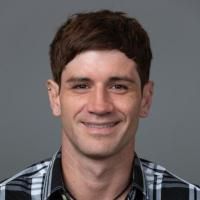Mind-Wandering as a Natural Kind: A Family-Resemblances View.
Date
2018-06
Journal Title
Journal ISSN
Volume Title
Repository Usage Stats
views
downloads
Citation Stats
Attention Stats
Abstract
As empirical research on mind-wandering accelerates, we draw attention to an emerging trend in how mind-wandering is conceptualized. Previously articulated definitions of mind-wandering differ from each other in important ways, yet they also maintain overlapping characteristics. This conceptual structure suggests that mind-wandering is best considered from a family-resemblances perspective, which entails treating it as a graded, heterogeneous construct and clearly measuring and describing the specific aspect(s) of mind-wandering that researchers are investigating. We believe that adopting this family-resemblances approach will increase conceptual and methodological connections among related phenomena in the mind-wandering family and encourage a more nuanced and precise understanding of the many varieties of mind-wandering.
Type
Department
Description
Provenance
Subjects
Citation
Permalink
Published Version (Please cite this version)
Publication Info
Seli, Paul, Michael J Kane, Jonathan Smallwood, Daniel L Schacter, David Maillet, Jonathan W Schooler and Daniel Smilek (2018). Mind-Wandering as a Natural Kind: A Family-Resemblances View. Trends in cognitive sciences, 22(6). pp. 479–490. 10.1016/j.tics.2018.03.010 Retrieved from https://hdl.handle.net/10161/17290.
This is constructed from limited available data and may be imprecise. To cite this article, please review & use the official citation provided by the journal.
Collections
Scholars@Duke

Paul Seli
My research is rooted in the exploration and understanding of the intricate tapestry of human consciousness. I am particularly fascinated by its myriad manifestations and the potential for our various conscious states to be harnessed as tools for individual and collective development.
My investigations are organized around four main pillars: creativity, mind wandering, dreaming, and the use of psychedelics. Each of these areas offers a unique lens through which to examine the depth and breadth of human consciousness, providing rich insights into our most elusive cognitive processes.
In the realm of creativity, my investigations delve into the mechanisms of innovative thought, seeking to understand how we can stimulate and cultivate this capacity to bolster productivity, refine problem-solving abilities, and spark novel insights. I’m interested in the conditions and cognitive processes that foster creative breakthroughs, with the goal of mapping the landscape of our creative consciousness.
In the arena of mind wandering, I explore the subtle interplay between directed thought and spontaneous cognition to shed light on the complexities and potential benefits of our minds' natural propensity to wander, and I examine methods with which we might reap the benefits of our untethered minds.
Dreaming is another, related, dimension of consciousness that I explore, with research that aims to unravel the cognitive underpinnings of our dream states. By seeking to understand the psychological correlates of dreaming, I aim to uncover how these unique conscious states may serve as catalysts for creativity and problem-solving.
Finally, my research delves into the potentially transformative properties of psychedelics. In this line of work, I aim to dissect the nature of psychedelic-induced states of consciousness to shed light on their implications for cognitive flexibility, creativity, and therapeutic outcomes. My research in this area focuses on deciphering the possible routes by which these substances may broaden our perception and augment our cognitive and creative faculties.
The ultimate goal of my program of research is to reveal the potential hidden within our diverse conscious states so that we can develop methods by which people can enhance their creativity, productivity, and problem-solving abilities. As we advance in our understanding of these states, we find ourselves better equipped to cultivate them in ways that might profoundly enrich our lives. This quest for understanding underscores my commitment to an integrative and humanistic approach to psychology, grounded in rigorous scientific investigation.
Unless otherwise indicated, scholarly articles published by Duke faculty members are made available here with a CC-BY-NC (Creative Commons Attribution Non-Commercial) license, as enabled by the Duke Open Access Policy. If you wish to use the materials in ways not already permitted under CC-BY-NC, please consult the copyright owner. Other materials are made available here through the author’s grant of a non-exclusive license to make their work openly accessible.
